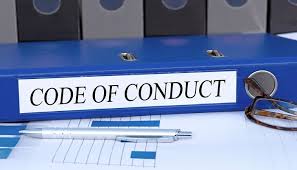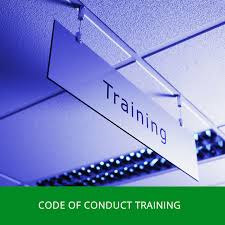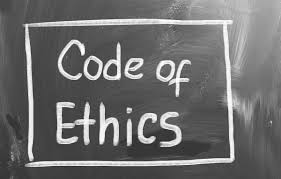Code of Conduct Training – Now What?
 When it comes to corporate compliance programs, change does not occur quickly. CCOs are extremely pleased with their improved delivery of code of conduct training. Across the board, companies are refining their codes of conduct and following up with robust training programs to emphasize the importance of a company’s code of conduct.
When it comes to corporate compliance programs, change does not occur quickly. CCOs are extremely pleased with their improved delivery of code of conduct training. Across the board, companies are refining their codes of conduct and following up with robust training programs to emphasize the importance of a company’s code of conduct.
That is all well and good. But it is really only the beginning of an effort that should extend well beyond a company’s code of conduct and into a more refined strategy for delivering effective training programs.
I do not mean to belittle the importance of code of conduct training. It has to be done and accomplished quickly. After that, a training program has to focus on specific risks and strategies to mitigate these risks. This is where a training program can become very successful as a risk mitigation strategy.
Starting from a company’s risk assessment (in whatever format), a training program has to be crafted in response to those specific risks. A CCO and a training director have to rank the respective risks, craft the content for addressing those risks and then deliver the training content to the specific audience in that risk category.
It is easy to come up with examples – the sales staff that interacts with foreign officials for valuable contracts needs to have a specific training program focused on these risks. The range of risks includes: gifts and hospitality; use of third party agents; and direct interactions in securing valuable contracts with foreign government officials.
The content of the training program should not just a recitation of the FCPA, the UK Bribery Act or any other applicable anti-corruption law. The real question is how do those laws apply to specific interactions and situations that the sales staff commonly faces when seeking business from foreign governments.
A number of hypothetical (or not so hypothetical) scenarios should be created and specifically addressed as part of the training session. For a CCO and a training director, putting together a relevant and focused training session requires time and attention.
Some CCOs and legal staff will write their own content; some will rely on vendors to tailor the content to the specific situations a company may face. The content is important – if it is just general mumbo jumbo, with bland legal recitations, the CCO and training director have missed a valuable opportunity.
An effective training program addresses not only real world risks but reinforces internal compliance procedures. In other words, a training program can run through various scenarios but it also needs to remind participants of the specific policies and procedures that govern their interactions.
Another valuable training opportunity is to reinforce monitoring capabilities of various functions. The accounts payable or vendor onboarding are perfect audiences for this type of training. An accounts payable staff should be trained on how their responsibilities fit into compliance and how they can assist compliance by identifying potential red flags for follow up. If the accounts payable staff reviews invoices for accuracy and completeness, they are uniquely situated to identify unusual charges or  fees, or to enforce contract requirements.
fees, or to enforce contract requirements.
Similarly, financial staff that is responsible for reviewing and approving potential vendors plays a specific and important role in a company’s compliance program. As an important gatekeeper, the financial staff should be trained on red flags (e.g. third party payment requirements) and other due diligence requirements.
In the end, an effective training program can deliver tangible benefits commensurate with the amount of resources devoted to targeted content and the specific audience.















